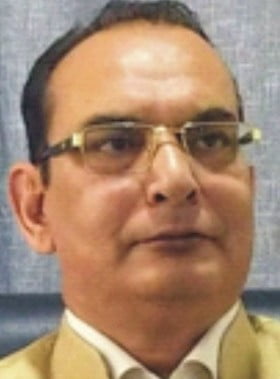
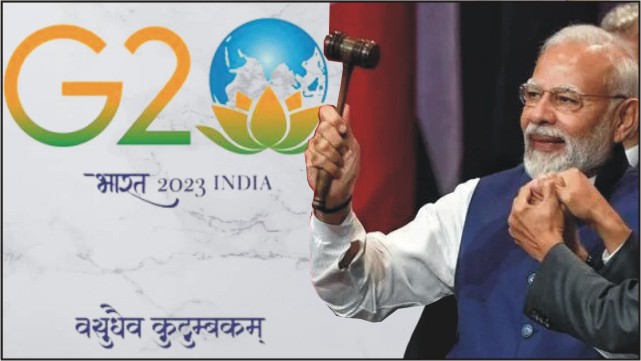
By assuming the Presidency of the G20 and UNSC, for one year and one month respectively, for next one-year India gets a unique opportunity for the country to contribute to the global agenda on pressing issues of international importance.
G20 is the premier forum for international economic cooperation representing around 85 per cent of the global GDP, over 75 of the worldwide trade, and about two-thirds of the world population.

During the G-20 Presidency, to show its resolve to focus on those issues which are dear to it, India will hold about 200 meetings in 32 different sectors in multiple locations across India.
The G20 Summit to be held next year would be one of the highest-profile international gatherings to be hosted by India.
External Affairs Minister S. Jaishankar defining its agenda for G-20 and UNSC has said that New Delhi would like to use the presidency of the group to reflect interests and concerns today of the global south.
As India formally assumed the G20 presidency PM Modi said he will work to further global good through an inclusive, action-oriented and decisive agenda.In a write-up PM Modi said India could catalyse a fundamental mindset shift to benefit humanity as a whole?“I believe we can,”he wrote.
The PM stressed that India’s G20 presidency theme – ‘One Earth, One Family, One Future’ – is not just a slogan as it takes into account “recent changes in human circumstances”, adding that India’s G-20 presidency will work to promote a universal sense of one-ness.
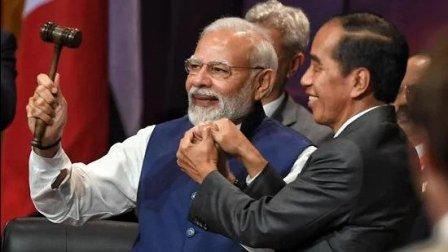
India looks forward to working on encouraging sustainable lifestyles, depoliticising the global supply of food, fertilisers and medical products among other subjects, the prime minister said.
For imbuing hope in our future generations, India will encourage an honest conversation among the most powerful countries on mitigating risks posed by weapons of mass destruction and enhancing global security,in addition to climate change, terrorism, and pandemics – which could be solved not by fighting each other, but only by acting together he wrote.
India’s forward plan
Indeed, the issues outlined by the prime minister and the EAM sound impressive, yet the real challenge will be on how to transform these into real achievements over the next one-year.
How India could contribute to changing the global stand on various pressing issues, including; controlling inflation, affirmative action on climate change and pandemic threats, besides producing an inclusive governance model.
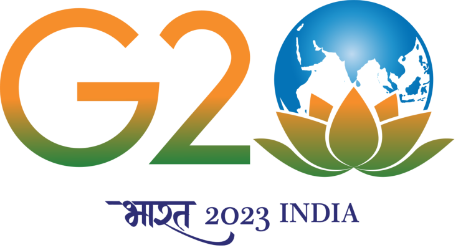 There is hope that India can make meaningful contributions to the global economy and can help improve the current unstable geopolitical state of affairs during its reign as G20 president.
There is hope that India can make meaningful contributions to the global economy and can help improve the current unstable geopolitical state of affairs during its reign as G20 president.
The world is staring at a recession following the Covid induced economic downturn and supply chain issues which have been further exacerbated by the Russia-Ukraine conflict, fuelling runaway inflation.
Global growth has hit a major roadblock. While the world grew at 6 per cent in 2021, the growth rate is projected to drop to 3.2 per cent in 2022 and will further slip to 2.7 per cent in 2023.
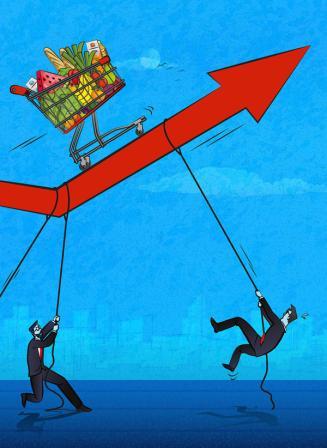 The global inflation rate, which stood at 4.7 per cent in 2021, is expected to rise to 8.8 per cent by the end of 2022. India, however, is expected to grow by 6.8 per cent in the current fiscal year and by 6.4 per cent in the following year. India is a model for others in achieving similar economic growth and stability.
The global inflation rate, which stood at 4.7 per cent in 2021, is expected to rise to 8.8 per cent by the end of 2022. India, however, is expected to grow by 6.8 per cent in the current fiscal year and by 6.4 per cent in the following year. India is a model for others in achieving similar economic growth and stability.
The G20 declaration, which predominantly echoed Indian ideas, vowed to push for global macro-economic stability by giving nations, particularly disadvantaged ones, a platform to improve their financial resilience.
Indian economists have a better understanding of middle-income and low-income countries. India, with its unique perspective, can help the G-20 achieve its goal of enhancing the financial resilience of these nations.
India’s economic model, which has advocated for open, liberal markets that provide opportunities to even the most vulnerable, has garnered praise from countries and organisations throughout the world.
Diplomatic tightrope
Over the last one year particularly India, has been able to maintain cordial relations with two U.S. administrations, in to addition to Russia and Iran, and despite mounting global pressure, has been able to maintain positive diplomatic ties with all countries and factions.
This is also a historic time for the G20, which will now be led by a nation that has always placed “dialogue and diplomacy” at the centre of its approach to international relations.
India’s diplomatic and economic policies have helped the country achieve significant growth at a time when other economies have failed or are struggling.
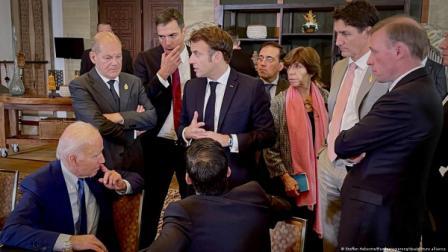 The Indian presidency has received support from various quarters, the latest being from the U.S. and France. The American and French presidents in their tweets have declared their support to India’s chair at these two fora.
The Indian presidency has received support from various quarters, the latest being from the U.S. and France. The American and French presidents in their tweets have declared their support to India’s chair at these two fora.
Thus, India seems to have the has full support of the global powers also, for initiating new thinking on tackling the global issues besides also an opportunity to become the voice of the Global South and help the UN to achieve more on its SDGs.
Thus, at the moment the plate seems full for India and we really hope that India will be able to leave its mark both diplomatically and politically on the G-20 by acting in a pragmatic manner to solve the issue facing the global world.
It would be prudent for the Indian leadership to pursue those issues which will have a bearing on the future of the world, like climate change related activities, pursuing net zero, to find ways to establish a modified economic system which considers poor countries much more benignly and also empower the world organisations like the United Nations and make sure that it leaves a new apparatus through which voices of the poor could be heard and action taken on them, much more effectively. ![]()
___________
Also Read:
Centre’s Opaque Auction Rules For Pulses Rip Off Govt Coffers, Help Millers Strike Rich
Need to amend laws like UAPA to provide for punishment for those who slap false cases
Global Arms Trade: Who are the real winners?
Why not 40 pc tickets for women in Punjab and elsewhere?
Punjab – How a deadly cocktail of Agri-Water-Energy nexus going to destroy it?

Disclaimer : PunjabTodayTV.com and other platforms of the Punjab Today group strive to include views and opinions from across the entire spectrum, but by no means do we agree with everything we publish. Our efforts and editorial choices consistently underscore our authors’ right to the freedom of speech. However, it should be clear to all readers that individual authors are responsible for the information, ideas or opinions in their articles, and very often, these do not reflect the views of PunjabTodayTV.com or other platforms of the group. Punjab Today does not assume any responsibility or liability for the views of authors whose work appears here.
Punjab Today believes in serious, engaging, narrative journalism at a time when mainstream media houses seem to have given up on long-form writing and news television has blurred or altogether erased the lines between news and slapstick entertainment. We at Punjab Today believe that readers such as yourself appreciate cerebral journalism, and would like you to hold us against the best international industry standards. Brickbats are welcome even more than bouquets, though an occasional pat on the back is always encouraging. Good journalism can be a lifeline in these uncertain times worldwide. You can support us in myriad ways. To begin with, by spreading word about us and forwarding this reportage. Stay engaged.
— Team PT


Copyright © Punjab Today TV : All right Reserve 2016 - 2024 |